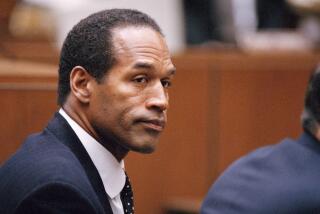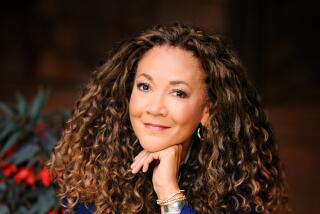Stripping a Poison Word of Its Power
- Share via
Racism is for white people, says the common wisdom. We are guilty by inheritance. All of us. Each of us corrupted in his normal heart. We are history’s prime plunderers, wearing in public discourse the scarlet “R” of cultural remorse. Many of us do so gladly because basking in guilt somehow assuages it. Self-deprecation half cleanses us of the past.
African Americans often play a scripted role in this perverse exchange as well by meeting whites’ far-flung penance with entitlement. Whites accept enduring culpability and moral inferiority but retain some implied status as overlords, arrogant givers of retributive largess. In exchange, blacks retain their cultural innocence, but they also retain the odious status of underlings, victims forever beholden to white magnanimity and what has been called the soft racism of low expectations.
This is the silent bargain we’ve made over race in the United States. It nurses a status quo that few challenge.
But this month, with the release of his controversial and much anticipated book “Nigger: The Strange Career of a Troublesome Word,” Harvard law professor Randall Kennedy may help invigorate the debate. His etymology of the “N-word” is far-reaching and refreshing: “As a linguistic landmark, nigger is being renovated. Blacks use the term with novel ease to refer to other blacks . . . whites are increasingly referring to other whites as niggers, and indeed, the term both as an insult and as a sign of affection is being affixed to people of all sorts.
“For bad or good, nigger is thus destined to remain with us for many years to come--a reminder of the ironies and dilemmas, the tragedies and glories, of the American experience.”
But when blacks use the N-word are they partaking in racism themselves? Kennedy says that depends on intent. Of course, many blacks use the term endearingly, he concedes, as a way of reclaiming rather than invoking the old slur. But they use it derogatorily too. So is this black-on-black racism? If so, is it simply internalized self-hatred borrowed from whites or is it endemic venom?
In her shocking and bold new play “Yellowman,” African American playwright Dael Orlandersmith ventures an unpopular view of black culpability. Now playing in Princeton, N.J., and poised to make a bicoastal tour, “Yellowman” tells the story of a light-skinned boy named Eugene and his darker-skinned playmate Alma, star-crossed lovers growing up in a bitterly divided South Carolina community of Gullahs--descendants of slaves who worked coastal cotton and rice fields--in the 1960s. As they mature, they are slowly, then violently ripped apart by familial racism. The Gullahs speak their own African-derived Geechie dialect. Yet still, they define darker skin as ugly, though more authentically black, and lightness as beautiful but at the same time traitorous and detestable because it is seen as having eluded the harshest burdens of slavery.
Orlandersmith makes liberal and jarring use of Kennedy’s N-word, to similar effect. It grates. But there is no question of intent. In the climactic scene, the light-skinned Eugene and his dark-skinned father fight, brutally hurling the bywords of anti-black feeling at each other.
Kennedy’s and Orlandersmith’s probing, audacious new treatments of what musician and critic Stanley Crouch called the “all-American skin game” and the epithet that drives it are a welcome change from the usual gruel. They remind us that hate is not race-specific. Black racism, when conceived purely as a response to white racism, absolves blacks of the responsibility for their own prejudices and locks them into a demeaning co- dependency with specious white power.
Sometimes, the best way to keep hate from ruling us is to strip the meaning from the words behind which it tries to hide.


